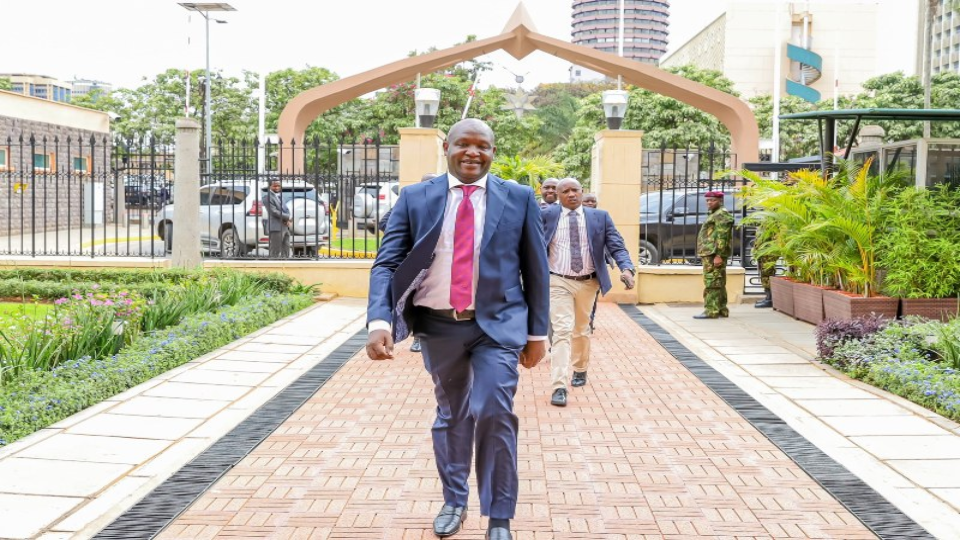Kericho Governor Erick Mutai Avoids Impeachment Once More as Senate Determines Required Threshold Was Not Achieved
Kericho Governor Erick Mutai has successfully evaded an impeachment attempt for the second time within a year, following a Senate decision that the necessary threshold of support from Members of County Assembly was not reached. The ruling came after a vote by delegation in which 16 Senators backed the impeachment, while 26 voted against it, enabling the governor to keep his position.
The impeachment motion was initiated by Kakamega Senator Boni Khalwale, who raised concerns about whether the required number of MCAs had actually voted in favor. After thorough discussions, the Senate concluded that the threshold of 32 MCAs, which represents two-thirds of the assembly, had not been met. This determination paved the way for the delegation vote that ultimately defeated the motion.
Senate Speaker Amason Kingi declared the outcome, noting that the opposition had prevailed. He stated that due to the failure to meet the two-thirds threshold, the entire impeachment process was being ended immediately. The result of the division shows the motion has been rejected, and as a result, the impeachment hearing concludes here, Kingi explained.
Prior to the vote, Governor Mutai addressed the Senators, pointing out that he had received the impeachment report on August 6, the very same day the motion was introduced. This timing left him with insufficient opportunity to review the details and prepare an adequate response. As mentioned previously, receiving the report on August 6, when the motion was tabled, created significant challenges in analyzing it and presenting properly, he noted.
Mutai also discussed how both the Ethics and Anti-Corruption Commission and the Directorate of Criminal Investigations had sought relevant documents during the process. He confirmed that he had directed county officials, including the County Secretary, to provide those materials without delay.
In his appeal to the Senate, Mutai requested another opportunity to lead, promising to fully carry out all suggestions from the investigative reports and to take action based on any future determinations regarding county officers' accountability. If given another chance, I will ensure complete implementation of the reports and follow through on recommendations from the investigative bodies, he assured.
Furthermore, he vowed to foster positive collaborations with the County Assembly, including its Speaker and MCAs, along with the Deputy Governor, the Senator, and Members of Parliament. This effort aims to better serve the residents of Kericho County over the remaining two years of his five-year term.
The impeachment originated from the Kericho County Assembly on August 15, stemming from claims of financial mismanagement, favoritism in hiring, and harassment of county employees. During his appearance before the Senate on Wednesday, the initial day of the hearing, Mutai rejected the accusations presented by the Clerk of the Senate, Jeremiah Nyegenye.
On Thursday, August 28, Mutai presented a strong defense, questioning the legitimacy of the electronic voting system used by the MCAs. A photograph captured Governor Erick Mutai arriving at the Senate for the impeachment hearing on that date.
This development follows a series of related events, including ongoing coverage of the impeachment trial entering its third day, expert testimony affirming the credibility and verifiability of the electronic voting system without irregularities, and the Senate weighing the governor's fate amid the proceedings. Additional context includes allegations that Mutai extorted officials through demands for fundraising contributions, his description of the removal effort as a political scheme with the speaker allegedly aiming for his role, and the dismissal of preliminary objections by Senate Speaker Kingi, allowing the trial to move forward.
The case highlights broader themes in Kenyan governance, such as accountability in county leadership and the procedural standards for impeachment processes


